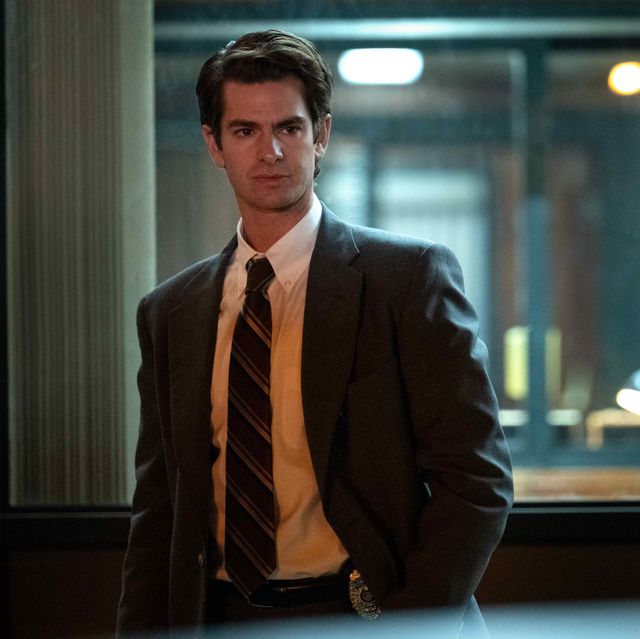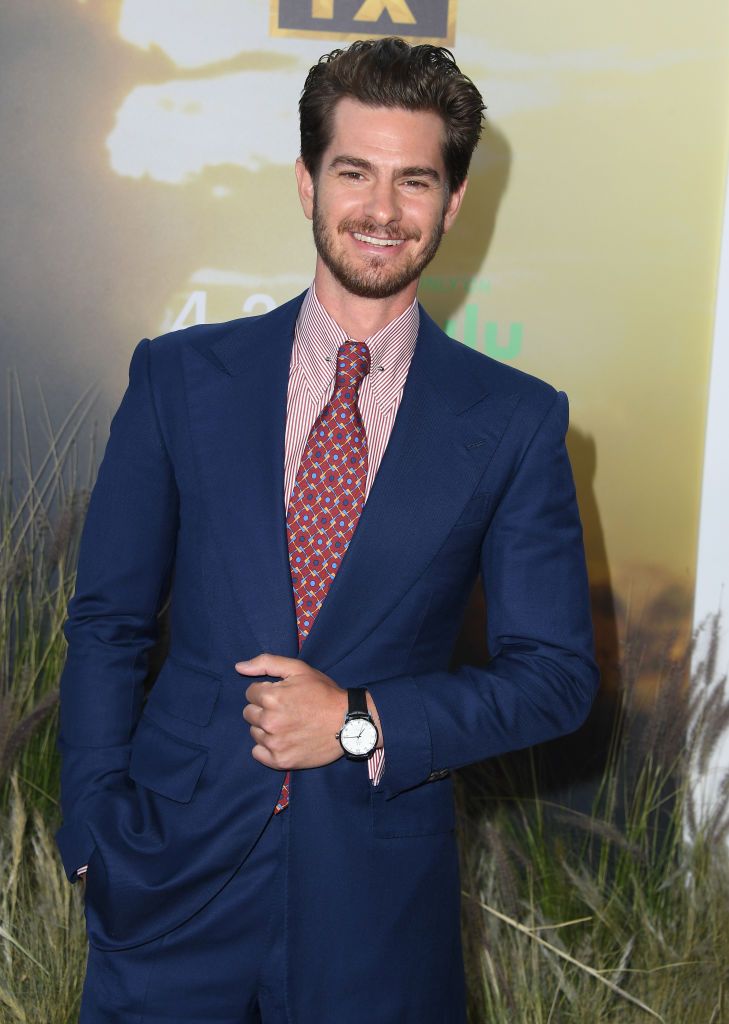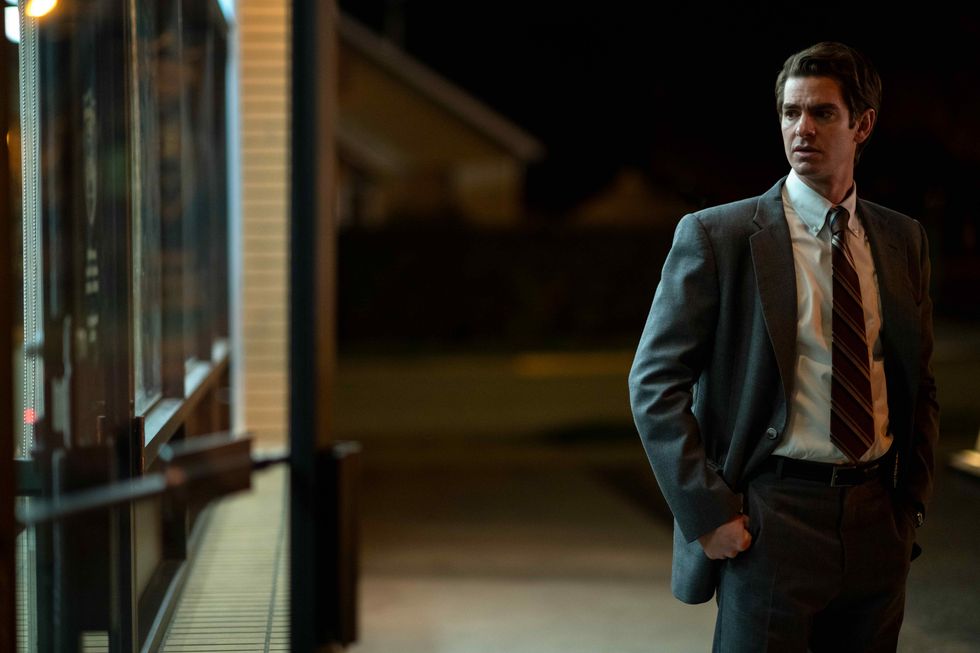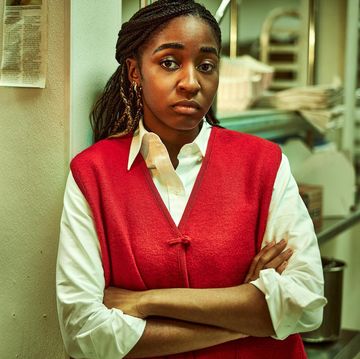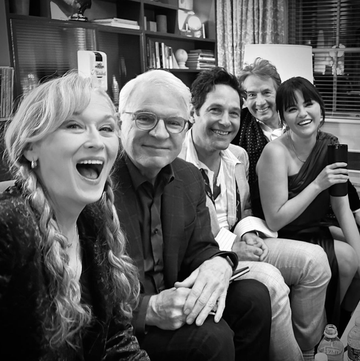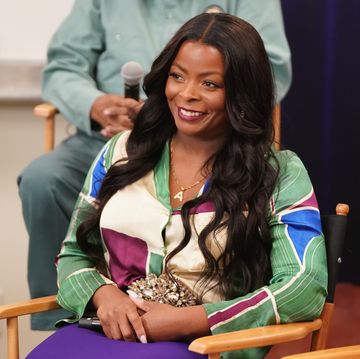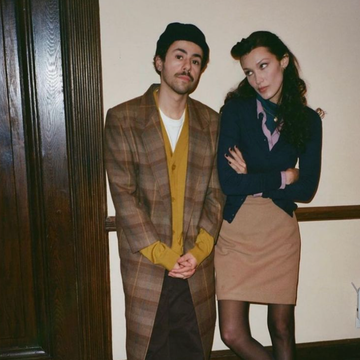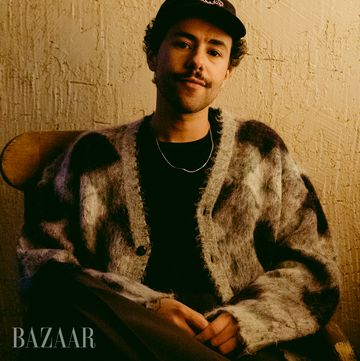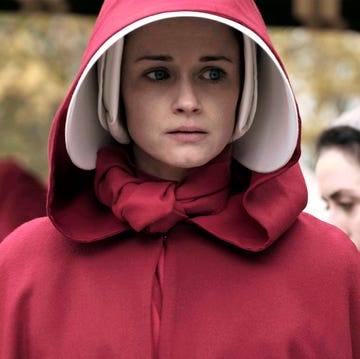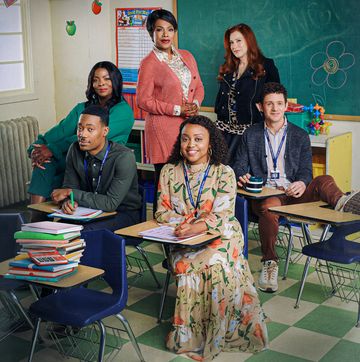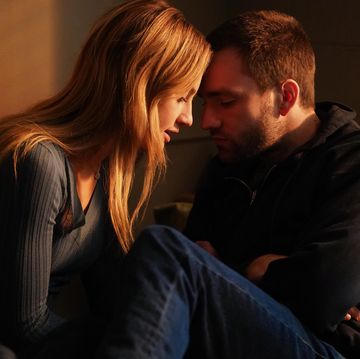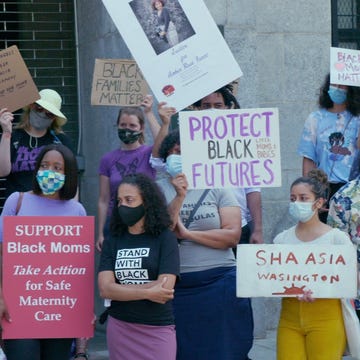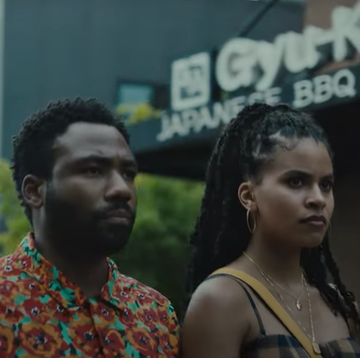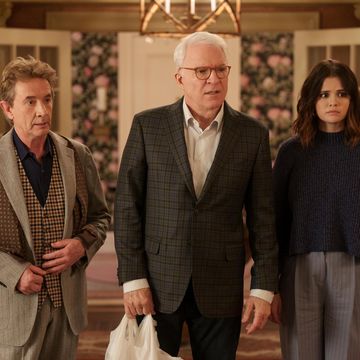After more than a decade of critically acclaimed big-screen performances (The Amazing Spider-Man, Hacksaw Ridge, tick, tick… BOOM!), Andrew Garfield is stepping into his first leading role on television, playing a devout Mormon detective in the new FX limited series Under the Banner of Heaven.
Based on Jon Krakauer’s best-selling nonfiction book of the same name and created for television by Academy Award winner Dustin Lance Black, the seven-part miniseries follows the events that led to the brutal murder of Brenda Wright Lafferty (Daisy Edgar-Jones) and her baby daughter, Erica, in Salt Lake Valley, Utah, in 1984. While investigating the events that transpired within the Lafferty family with his partner, Bill Taba (Gil Birmingham), Detective Jeb Pyre (Garfield) uncovers hidden truths about the origins of the LDS religion, forcing him to question his own faith and teachings.
Black and executive producer Ron Howard first began talking about adapting the book—initially as a feature film—more than a decade ago. But Garfield didn’t get involved until early last year. He’d just finished wrapping up his cameo with Tobey Maguire in Spider-Man: No Way Home and was looking for his next project when Black called him up.
“I read the book over 10 years ago and just found it so intriguing,” Garfield tells BAZAAR.com over Zoom from Los Angeles. “Dustin said, ‘I’ve managed to adapt this book, and I have seven scripts that I’d like you to look at, and I’ve invented a character at the center of it, who is the detective on the case. And I think it’s a really interesting part.’ I read it and I thought, ‘Oh, this is an easy yes,’ because I love this book, I love Dustin, I love the struggle that this character is living within.”
He adds, “It feels really prescient and really kind of juicy. I just love the story, I love the themes, and it feels like a great project to put into the world right now at this time where people are more and more drawn to fundamentalism and extremism of all sorts, whether it’s psychological or religious or otherwise. It feels like a really important story for now—it’s like a thrilling true crime with a soul, and the soul is Brenda Lafferty and Erica Lafferty, the two victims of this heinous murder.”
Below, Garfield speaks about his character’s psychological and emotional evolution, the importance of telling stories that can start larger conversations about different ways of life, and the “beautiful” experience of teaming up with Maguire and Tom Holland in No Way Home.
How did you prepare to take on the role of Jeb Pyre? Did you speak with any current or ex-Mormons or go to any Mormon churches?
Yeah, I did a lot of research. I traveled to Salt Lake City and the neighboring towns and hung out in Utah for a bit and hooked up with lots of really great interesting people—some ex-Mormons, some current Mormons, some bishops in the Mormon faith. [Even] Mormon detectives who have been through the exact struggle that my character goes through on a case where it’s horrendous acts that are being justified in the name of Heavenly Father, in the name of their God. It gave these people a real crisis of faith, and [they had] to reckon with the possibility of losing their lives, their faith, their religion, their community.
How does working on a fast-paced, serialized show compare to working on a film or play, and what do you enjoy most about working in this medium?
It is different. You’re kind of flying by the seat of your pants more often. Things are happening quickly, and there’s a lot to do. It’s kind of remarkable how they’ve managed to get all this done in the time that they had. I really am impressed and thankful to [executive producers] Dustin Lance Black and Anna Culp, who kept the ship going, and all the directors that came in to make their episodes and the core of the cast that really sustained the long winter months in Calgary, sometimes only shooting one or two days a month and having to wait to come [back]. I was lucky that I was in most days, most weeks. I had some time off, but I was able to keep working and keep my engine running, which was a challenge unto itself.
Also, to play a police officer, there’s lots of jargon and lingo. I am the audience’s eyes, uncovering the story with the audience as we go, so there was a procedural element that I had never been a part of. Gil Birmingham would say, “How are you feeling playing a cop in a procedural [drama]?” [Laughs.] I’m like, “This is challenging, dude, to keep this dialogue alive and to keep the interrogation scenes alive.” He’s an old hand at it because of all the work that he’s done, so that was cool to have him as a partner on- and off-screen.
You’ve played a number of religious characters over the years. But instead of playing into caricatures or stereotypes, your characters always have something to say. What were some of your biggest personal takeaways from playing a devout Mormon like Jeb this time around?
What I find fascinating and exciting about his journey in this show is [that] it’s expansive. His psyche gets cracked open. It’s terrifying and it’s awful, and you don’t want it to happen to you, but it’s ultimately a good thing when you go from having a narrow, kind of deluded point of view to having your mind blown and realizing that you’ve been living in a way that has been very small-minded. That is a really worthy journey to see happening onscreen, like someone waking up from a brainwashing, in a way, [going from] believing that there is only one true church [to then] realizing an ignorance, a kind of small-mindedness that has been conditioning the way that he has treated people.
[That is] specifically expressed through his partner, Taba, this Native American man that he might have dismissed previously because of what his religion taught him. [He’s] realizing that there’s wisdom everywhere and [gaining] the humility to accept that he doesn’t know hardly anything. That feels very important for us as a culture right now—to move away from fundamentalism, away from extremism, away from certainty, and towards a more pliant, open, humbled state where we can absorb and be open to and contemplate different ways of being.
You’ve spoken openly about the profound impact that loss has had on your life, and you’ve played a number of characters that are forced to reckon with their own faith in different ways. How has your personal relationship with faith and religion changed over the years?
It’s always changing. That’s one of the reasons why I was attracted to this character and the journey that he goes on. I’m always trying to drag myself into the place where I grow and expand, and don’t get stuck in one way of being. I’m always trying to be more open to life and to ideas, and to be humble enough to know that I know nothing. I think, ultimately, it’s about connection—connection to as much life as possible and as many ideas and people and ways of living as possible.
Looking ahead, are there any other genres that you would like to take on or revisit in the future? A lot of your fans would love to see you play a really good villain or star in a romantic comedy.
I think, like, a villain rom-com. [Laughs.] Like, a bad guy falling in love, a vampire rom-com, I don’t know. Listen, I’m open. It’s hard to know until I know. Right now, I’m tired and I’m gonna take a beat to rest and to be a person, even though it’s tempting to work, because I love working. Sometimes you have to take a moment and refill the well, and then come back and have energy to give some more. Maybe I’m just getting older and I need to rest more. I’m almost 40!
I can’t let you go without asking about Spider-Man. Given that you, Tobey, and Tom are part of this unique piece of cinematic history, what would you say has been the most gratifying or surprising part of being able to share a role with someone, and then build a lasting friendship from that bond?
You said it really well. I think what was surprising was how the three of us just fell into a kind of brotherhood, like a real, loving brotherhood, because there was every possibility that we would all show up and each one of our egos would outweigh the greater thing. [Laughs.] I was so impressed that none of us felt like we had the answers. All three of us were just so happy to play together in the sandbox of Spider-Man. I think that’s a kind of testament to our individual connections to that character, where we’re just so grateful that we get to play that character and [we] know how much it means to so many people.
I remember my own audition for Spider-Man, my screen test. I realized I had to treat it like I was making a short film with a bunch of friends, and that’s the spirit that I tried to keep making my few films with. It really kind of came to a head with Tobey and Tom, because it was like, “We’re all in the sandbox, we’re in the playground, and we just feel so happy and giddy to be able to have a Halloween party all dressed as Spider-Man!” Just having total wish fulfillment together, it was just so beautiful.
This interview has been edited and condensed for length and clarity.

Max Gao is a freelance entertainment and sports journalist based in Toronto. He has written for The New York Times, Los Angeles Times, NBC News, Sports Illustrated, The Daily Beast, Harper’s Bazaar, ELLE, Men's Health, Teen Vogue and W Magazine. Follow him on Twitter: @MaxJGao.
